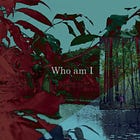#72: What i think about when thinking about what to write about
The personal content strategy I deploy as a creator
Hello friends,
Welcome to my #72nd post. This is a fun one. I’m still messing around with some formatting, among other things for a better reading experience. Thanks for being here!
If you liked my old post, #53: How I'm Redesigning My Writing Process, there’s a good chance you’ll like this as well.
When I first started writing publicly, I was firmly committed to the idea of being a creator rather than a curator. To me, creator means you are responsible for all of the writing that is being produced and shipped. Whereas a curator is as it sounds: you collect relevant ideas of others across the internet and elsewhere and present it to your audience. Normally, most people are both, or at least a little bit of both.
In my case, I wanted it to be more like 80/20: 80% original work, 20% curation. It sounded perfect at that time. I would spend a lot of time reading various materials, gain insights, gather evidence and turn them into a long-form piece of content. Rinse and repeat.
Over time, I knew that to improve on this, I would need to double down on my reading and learning, in general. It is, after all, my source material, alongside the real life experiences I’m gaining. Nonfiction writing relies heavily on real world problems. I can’t daydream my way out of this, and maybe that’s what I love most about it.
When you’re serious about improving your craft, there is always something you can do to be better, to be ahead of others, to be original. Every piece shipped is a learning experience in itself, it’s never perfect, that’s the point. The beauty about writing on the internet is the landscape is more forgiving. One bad piece won’t end anyone’s writing career. At least in theory. You can always write again, the next one will be better if you allow it to be.
The way to be better, in my case, is diversity. The more ideas I expose myself to, the better my thinking will be. I can’t compete through specialization, I’ve always known that. My strength is in the range of the topics I cover but also in the depth I go through for the 1% of that.
Writing, editing, producing and shipping work would not be possible for me without these 4 principles/actions/habits I live by:
Continuously improve your note-taking skills
Having a system for capturing ideas anytime, anywhere is really important for any creative endeavor. Ideas are fleeting, it’s also hard to judge them based on first impressions aka the minute you’ve thought about them. That’s why it’s critical to document them first & treat them all equally until they aren’t later on. Note-taking is one of the best ways to do that.
I’m currently reading a book that helps me with exactly this. Here’s a quote from it:
“If you want to learn something for the long run, you have to write it down. If you want to really understand something, you have to translate it into your own words. Thinking takes place as much on paper as in your own head.”
― Sönke Ahrens, How to Take Smart Notes: One Simple Technique to Boost Writing, Learning and Thinking
When thinking about what to write, avoid starting from scratch
Writing shouldn’t begin the minute you sit down with a pen & a piece of paper, or in my case, a word processor on a laptop. It starts the minute you start consuming things, absorbing experiences and processing them internally. It’s hard to write anything from scratch especially if you’re constantly dictated by your constraints such as the scarcity of time. The most effective pieces of writing I’ve ever done didn’t happen overnight. They were products of iteration and countless thought exercises. If you’re interested about a particular topic, it is highly unlikely that you don’t already have some form of material on it. Maybe it’s a photo on your phone, or a random post-it note on your table, there’s always an artifact that traces back to that. When thinking about what to write about, don’t open a blank word doc. Look around you instead. The patterns would eventually show themselves.
I have been writing these for years:
To stand out and be different, make it personal
Any decent designer can write a piece about Figma, or Design Systems, or Portfolios. If it’s any good, interested parties would consume them, and would probably share them. In the age of artificial intelligence, this will only get easier and more democratized. One thing that would be hard to replicate? Personal touches. Don’t be afraid to write from your POVs. In fact, run as fast as you can towards it. Good things can come out of the most unexpected of places, including areas in your life you might not consider as purveyors of such. (This is hard for a reason: it requires some level of vulnerability, self-awareness & intellectual humility from the writer. In an extremely public environment such as the internet. This will always be a hit or a miss and that is an uncomfortable thing to put yourself in.)
In terms of going personal, here are just some of the pieces of writing that I’m really proud of:
Writing publicly means writing with an audience in mind, although it is personal, this is not a journal.
In the book, Write Useful Books by Rob Fitzpatrick, he talked a lot about the parallels of product development and writing. They are not too different in terms of processes. They are both incredibly iterative and feedback-driven. They are both an exercise of creative freedom with a user-centered goal in mind, as opposed to just firmly an artistic expression.
Ideas can’t thrive in isolation. It is a gift to have them, to pursue them and to ultimately help people using them. The kind of writing I am interested in is precisely this. I write with people in mind and the first person on that list is me. If it’s useful for me, I am convinced it could also be just as useful for someone else. The opposite is also true: the content I choose to read and listen to are incredibly important to my goals as a person. Otherwise, it’s hard to justify the time and energy I pay for.
The abundance of choices in this modern world is a double-edge sword: we are living in a time wherein most of everything you would need is fairly accessible, assuming you’re living in places like the United States. Comparing to the society our grandparents & parents have lived in, we have way, way more options now. From the careers we pick to the places we put our roots on, the table sure has a lot more on it than it used to be. Having the self-awareness and the proper education to take calculated risks, assess all viable options and wisely make the right choices amidst all of this— this is the difficult part.
What you consume, consumes you back. It’s these little choices that shapes our minds and ultimately our futures. I think about this everytime I release any piece of writing out into the wild. Including this—especially this.
Since I am a fan of questions, I’m ending this bit with just that:
‘What seeds am I potentially planting into someone’s mind?’
‘In the future, if I were to look back, would I regret the things I’ve said and written?’
‘Would I let my son read the work I continuously ship and advocate for?’
‘In which areas could I be possibly wrong? or harmful’?
Setting anti-goals
I want to be the only, not the best. This path isn’t any easier, it’s just different. It aligns more with the experimental types, the bootstrappers, the self-taught rebels, which I very much am. At least, when it comes to my approach to the craft of writing, nonfiction writing, specifically.
The challenge now is catching up, and managing a few things fairly well:
Knowledge management - having a healthy and rich content diet makes a huge difference to the quality of ideas you’re thinking about
Idea curation - getting ideas and knowing what to keep and pursue is a skill on its own
Book consumption - knowing what to read, what to finish from cover-to-cover and what to discard when time is a real constraint
And most importantly, having a grand time doing all of this on the side. Dedication and willpower are nothing if you are not having fun. The minute a task becomes grueling, motivation is threatened and flow is potentially disrupted. It’ll feel like work. If there’s ever an anti-goal to all of this, it should be that.
‘Not work.’
Make meaningful things happen, while having the best time doing them. People who understand how creativity works know this to be true. This is the secret to longevity and continuous success for a lot of them. The best things I’ve ever been a part of had no shortage of difficulties but they’ve all been pretty fun to be a part of, before, during and many years after shipping.
I can’t forget what Naval said about this: ‘What feels like play to you, but looks like work to others?
This is the only strategy that’s going to work1 for a long time, in a game that requires a lot of creative stamina, patience and faith.
Thank you for reading Working Title,
Nikki
If you have a spare moment, I’d love to hear your opinion on my newsletter. This will help me understand what to write about and curate better. I am also on Notes, where I post previews and premature ideas that fuel my writing streaks.
Worth sharing:
Recommended Reading on Art as Resistance, Publishing, and Writing, too by
- , his podcast episode on Infinite Loops is also worth listening to if you are into entrepreneurship, writing and pursuing your own paths
The Bridge #85 - a refreshing and meditative read for the new year
Won’t drive the creator insane before reaching a certain level of success






